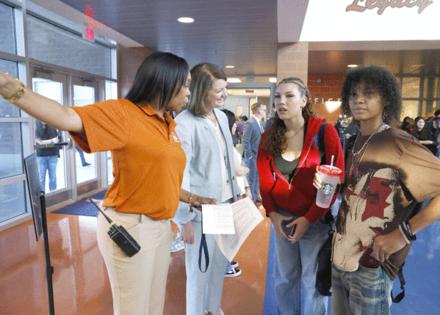Editorial: Why many school children now fear ideas
Published in Op Eds
The text of the First Amendment hasn’t changed, but many young adults would like it to. A study from The Future of Free Speech found that fewer than half of those aged 18 to 34 believe “hate speech” should be protected.
Restoring civil discourse begins with understanding why so many people view it as a problem to solve instead of as a gift to enjoy.
This didn’t occur because Americans once agreed on every major issue. The Civil War is one obvious example of that. But differences are why we need civil discourse.
“When you stop having a human connection with someone you disagree with, it becomes a lot easier to want to commit violence against that group,” Charlie Kirk warned in a video before his death. He continued, “What we as a culture have to get back to is being able to have a reasonable disagreement where violence is not an option.”
Public schools grew out of the idea that society needs to develop children into good and productive citizens. That is an important task for a democratic republic in which an informed citizenry is vital.
But in many schools of education, teachers learn they have a different role. “Pedagogy of the Oppressed” by Paulo Freire, a Brazilian Marxist, is one of the most influential books in U.S. teacher-training courses. He embraces the false dichotomy that the world is divided between oppressed and oppressor. He urged teachers not to pass on the wisdom of Western civilization. He railed against attempts to present others with “prescriptions for behavior.” In his view, that is how the oppressors assert their dominance.
“The one who is doing the decreeing defines himself and the class to which he belongs as those who know or were born to, know; he thereby defines others as alien entities,” Freire wrote. “The words of his own class come to be the ‘true’ words, which he imposes or attempts to impose on the others: the oppressed, whose words have been stolen from them.”
This argument starts with a rejection of absolute truth. He then claims that a society promoting its values, such as free speech, harms the “oppressed.” Teach a child this, and he will view debate not as a way to develop crucial critical thinking skils but as an active threat.
Sadly, this worldview has infected high school debate. This was once an activity that forced students to consider both sides of an issue. There’s great value in that. When you argue a position you don’t agree with, you grow in your understanding of why someone might believe it — and you might even strengthen your own convictions.
Instead, many modern debate judges want students to regurgitate Marxist claptrap. “I cannot check the revolutionary proletarian science at the door when I’m judging,” former high school debate champiton Lila Lavender wrote on her judging philosophy, adding, “I will no longer evaluate and thus ever vote for rightest capitalist-imperialist positions/arguments.”
Taxpayers shouldn’t be funding schools of education that promote an anti-American ideology and consider precious rights such as free speech to be tools of oppression. State and local officials must counter the influence of such toxic ideologies. That could entail reviewing curriculum and requiring high school teachers to pass a civics test to receive their licenses.
A key step in re-establishing civil discourse is removing this false and poisonous notion from our schools.
©2025 Las Vegas Review-Journal. Visit reviewjournal.com.. Distributed by Tribune Content Agency, LLC.
























































Comments